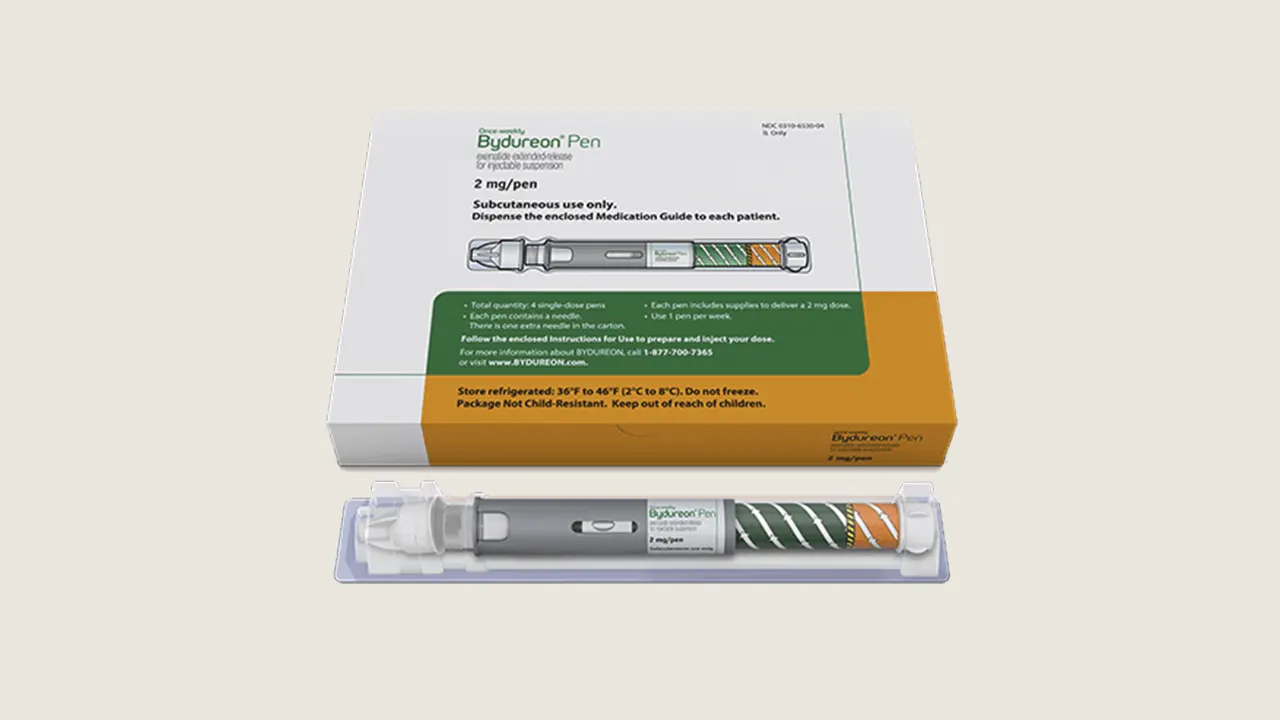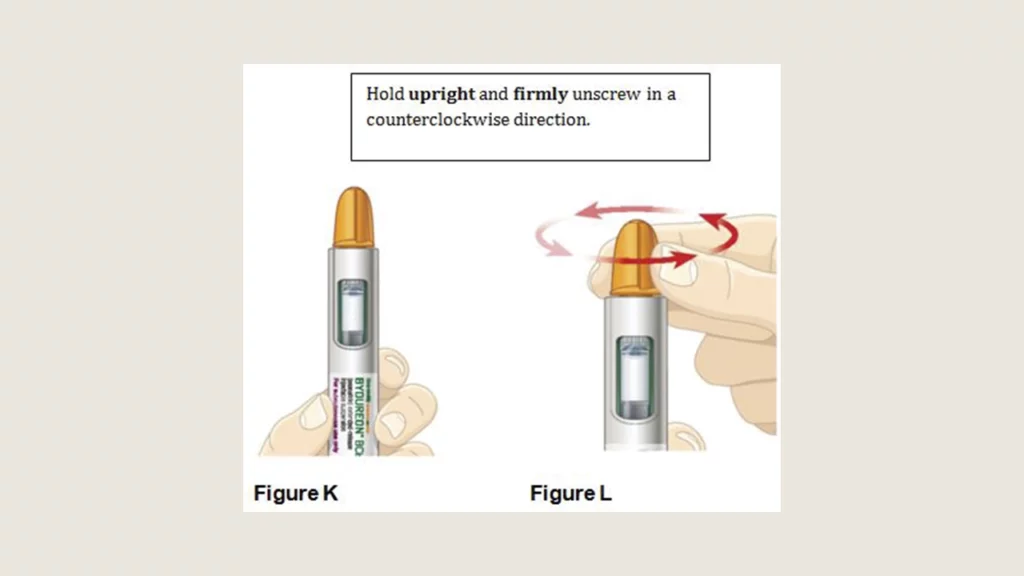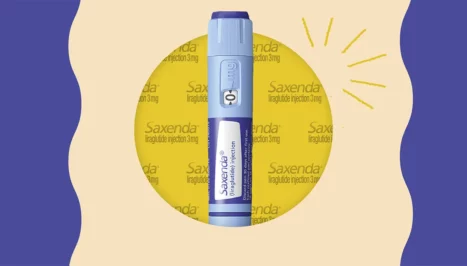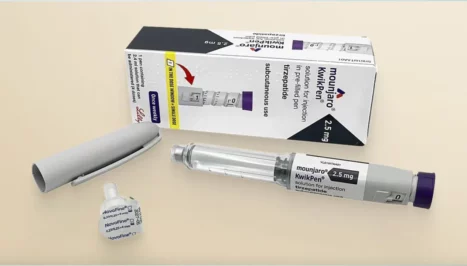Is Baydurin Injection Still Used for Weight Loss?

In today’s crowded market of weight-loss drugs like Ozempic and Mounjaro, the name Baydurin injection (Bydureon) may sound less familiar. Think of it as a respected veteran—once a star on stage, now overshadowed by younger and more powerful players. But does this mean Baydurin has lost its value? Or does it still hold a special place in obesity treatment? Let’s explore its past, present, and whether it still matters today.
What Is Baydurin Injection and Which Drug Family Does It Belong To?
Baydurin injection was one of the first members of the GLP-1 receptor agonist family, introduced as a once-weekly injection. Its active ingredient is exenatide. Long before Ozempic became a global sensation, Baydurin was used to manage blood sugar levels in people with type 2 diabetes.
Soon after its launch, doctors and patients noticed something interesting: in addition to blood sugar control, Baydurin injection also supported weight loss. While its effects weren’t as dramatic as newer drugs, at the time it was considered a major breakthrough that paved the way for stronger GLP-1 therapies.

How Does Baydurin Injection Work?
The mechanism of Baydurin injection is similar to other GLP-1 drugs, since they all act in a comparable way. Exenatide mimics the natural hormone GLP-1 in the body and performs three important functions:
- Appetite control in the brain: Signals the satiety center to make you feel full, naturally reducing calorie intake.
- Slows digestion: Delays gastric emptying so you feel full longer and avoid snacking.
- Optimizes insulin release: Helps the pancreas release insulin only when needed (after meals), while reducing glucagon—the hormone that raises blood sugar.
Together, these effects make Baydurin injection an effective medication for type 2 diabetes, with weight loss as an additional benefit.
Also read this: The most important things you should know about Maciza injection
Why Did Ozempic Become More Popular Than Baydurin?
This is the key question: if both drugs belong to the same family, why did one become a media superstar while the other faded into the background? The answer lies in some critical differences:
| Feature | Baydurin injection (Bydureon) | Ozempic (Semaglutide) |
|---|---|---|
| Active ingredient | Exenatide | Semaglutide |
| Drug generation | Older generation | Newer, optimized version |
| Weight loss power | Moderate (2–5 kg average) | Significant (up to 15% of body weight) |
| FDA approval | Only for type 2 diabetes | Type 2 diabetes + obesity (in Wegovy form) |
| Administration | Requires mixing powder & liquid | Ready-to-use injection pen |
| Side effects | Injection site nodules common | GI side effects more common at high doses |
Semaglutide (Ozempic’s ingredient) is a newer, engineered molecule that binds more strongly to GLP-1 receptors and lasts longer in the body. This leads to greater appetite suppression and much more noticeable weight loss.

How Much Weight Can You Really Lose With Baydurin Injection?
Let’s be honest: if your primary goal is major weight loss, Baydurin injection is not the first choice today.
Clinical studies show average weight loss of 2–5 kg (4–11 lbs) over 6–12 months.
For a type 2 diabetic patient, this is still an excellent result because it combines better blood sugar control with moderate weight reduction. But compared to the 10–20 kg loss seen with newer drugs, Baydurin no longer stands out as a top anti-obesity option.
Also read this: What Is Victoza Injection and How Does It Help With Weight Loss?
Side Effects of Baydurin Injection You Should Know
Like other GLP-1 drugs, Baydurin injection has side effects—mostly gastrointestinal:
- Nausea (especially at the start of treatment)
- Loss of appetite
- Diarrhea or vomiting
However, there is one side effect more common with Baydurin than with others:
- Injection site reactions: Because of its suspension formulation, many users experience small lumps (nodules), redness, or itching at the injection site. These are usually harmless and fade over time but can be bothersome.
Rare but serious risks include pancreatitis (inflammation of the pancreas) and potential thyroid tumors (seen in animal studies). For this reason, it must always be used under medical supervision.

Who Is Still a Good Candidate for Baydurin Injection?
Despite its decline in popularity, Baydurin injection is still a valuable treatment for type 2 diabetes. A diabetic patient who prefers a once-weekly injection and benefits from moderate weight loss may be an excellent candidate.
Sometimes, doctors may even prefer Baydurin due to insurance coverage or if a patient’s body responds better to exenatide than to newer GLP-1 drugs.
But for non-diabetic individuals seeking powerful weight loss, modern medicine now offers far more effective options such as semaglutide (Wegovy) or tirzepatide (Mounjaro).
Also read this: What Is Tesamorelin Injection and Should You Use It?
Key Takeaways About Baydurin Injection
Baydurin injection was revolutionary in its time, opening the door to understanding the role of gut hormones in diabetes and obesity treatment. It is still a good and safe option for type 2 diabetes management, but as a weight-loss drug, it has largely been replaced by stronger next-generation treatments.
This isn’t the story of Baydurin’s failure—it’s the story of scientific progress. And remember: the choice of medication should always be made with your doctor, based on your unique health condition.

FAQs About Baydurin Injection
No. It is officially approved only for type 2 diabetes. Other approved drugs are more effective for obesity treatment.
Both are GLP-1 drugs, but Victoza’s ingredient is liraglutide, injected daily, while Baydurin injection (exenatide) is weekly.
Compared to newer injection pens, yes. You need to mix powder and liquid before injection. But with practice, it becomes easier.
It’s common! Rotate injection sites weekly (stomach, thigh, etc.). If lumps are painful or infected, consult your doctor.
Yes. Like all GLP-1 drugs, it is prescription-only. Self-medicating is dangerous.
Final Word: Should You Still Consider Baydurin Injection?
Baydurin injection is not the strongest weight-loss medication anymore, but it still plays a valuable role in diabetes care. If you are diabetic and looking for both better blood sugar control and some weight reduction, Baydurin remains a valid option. For non-diabetics seeking significant weight loss, newer GLP-1 drugs are far more effective.




